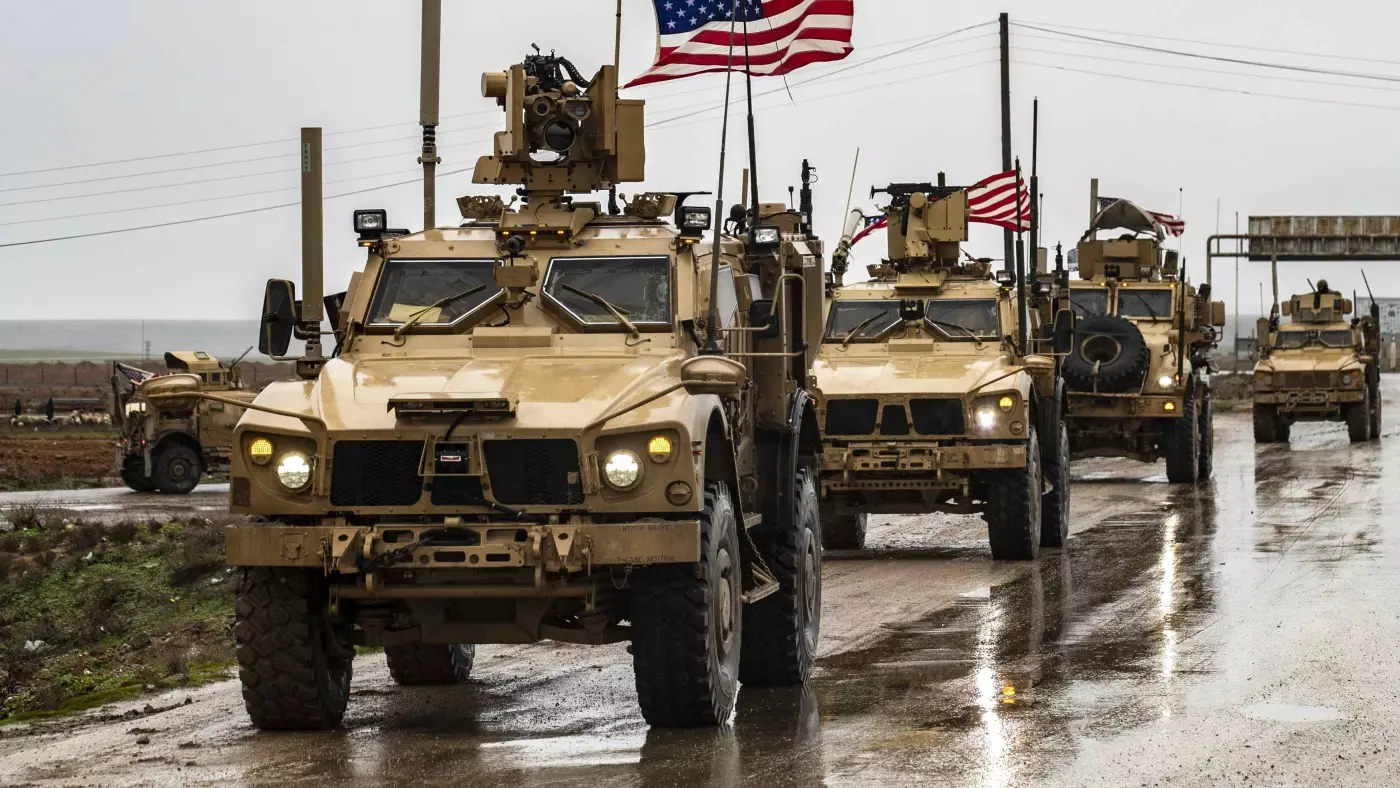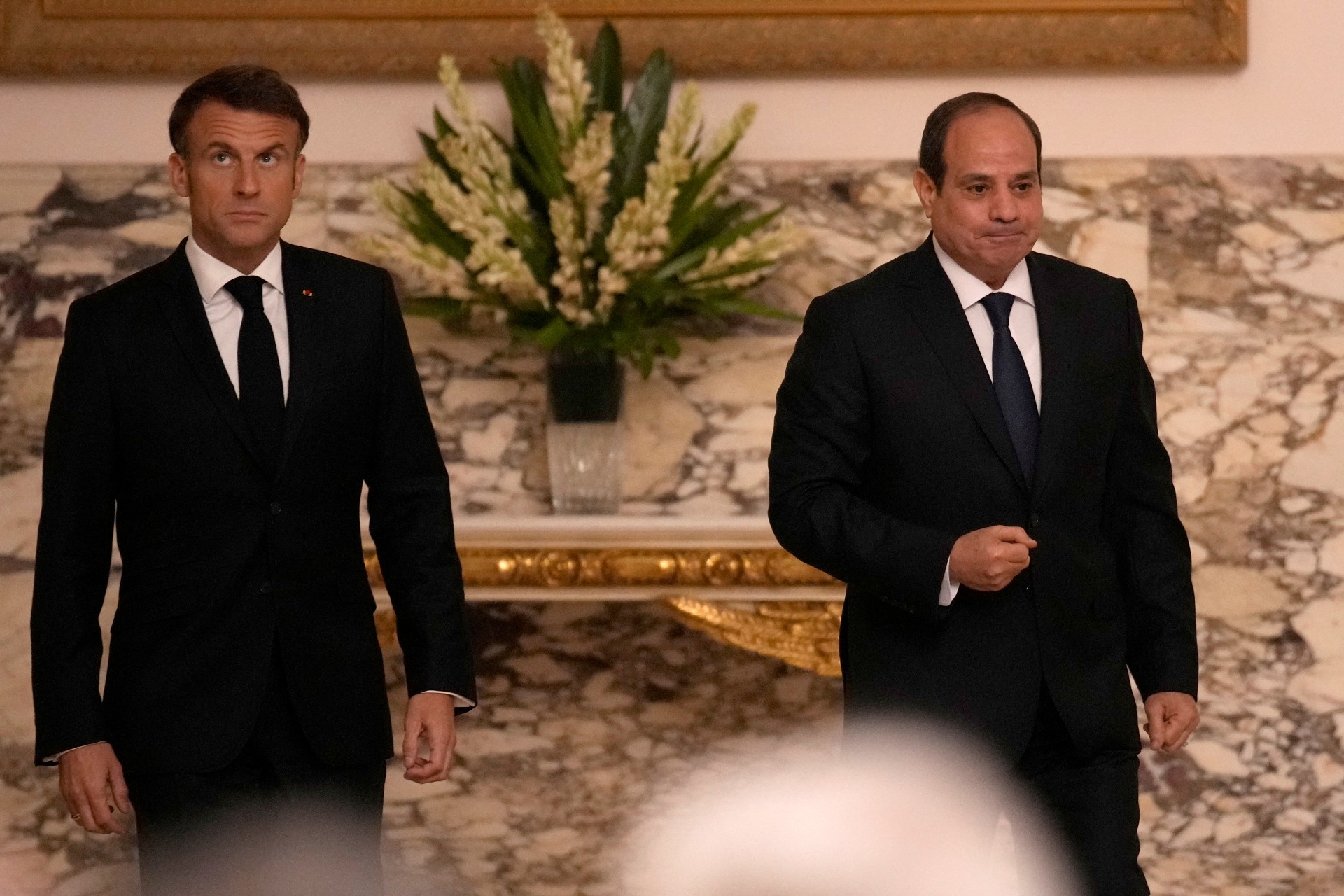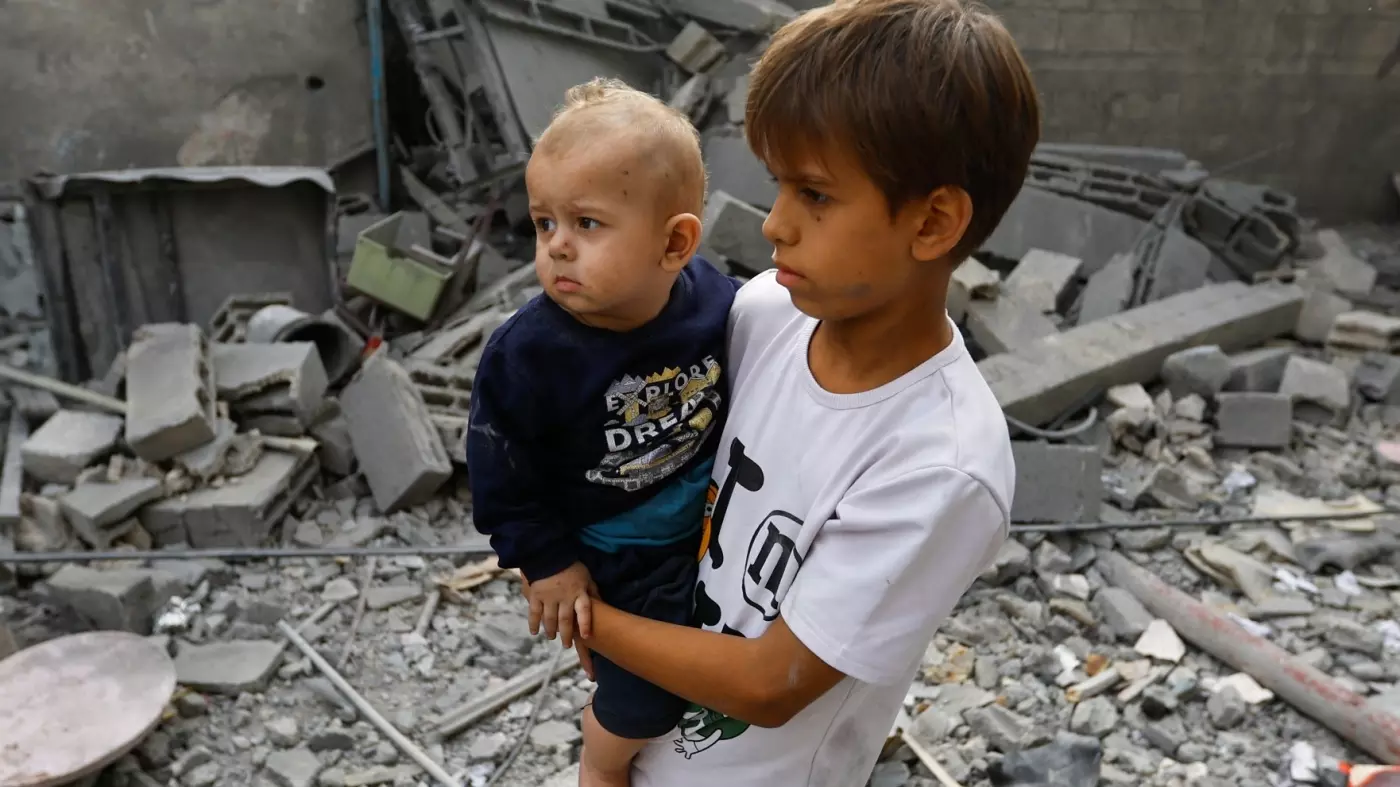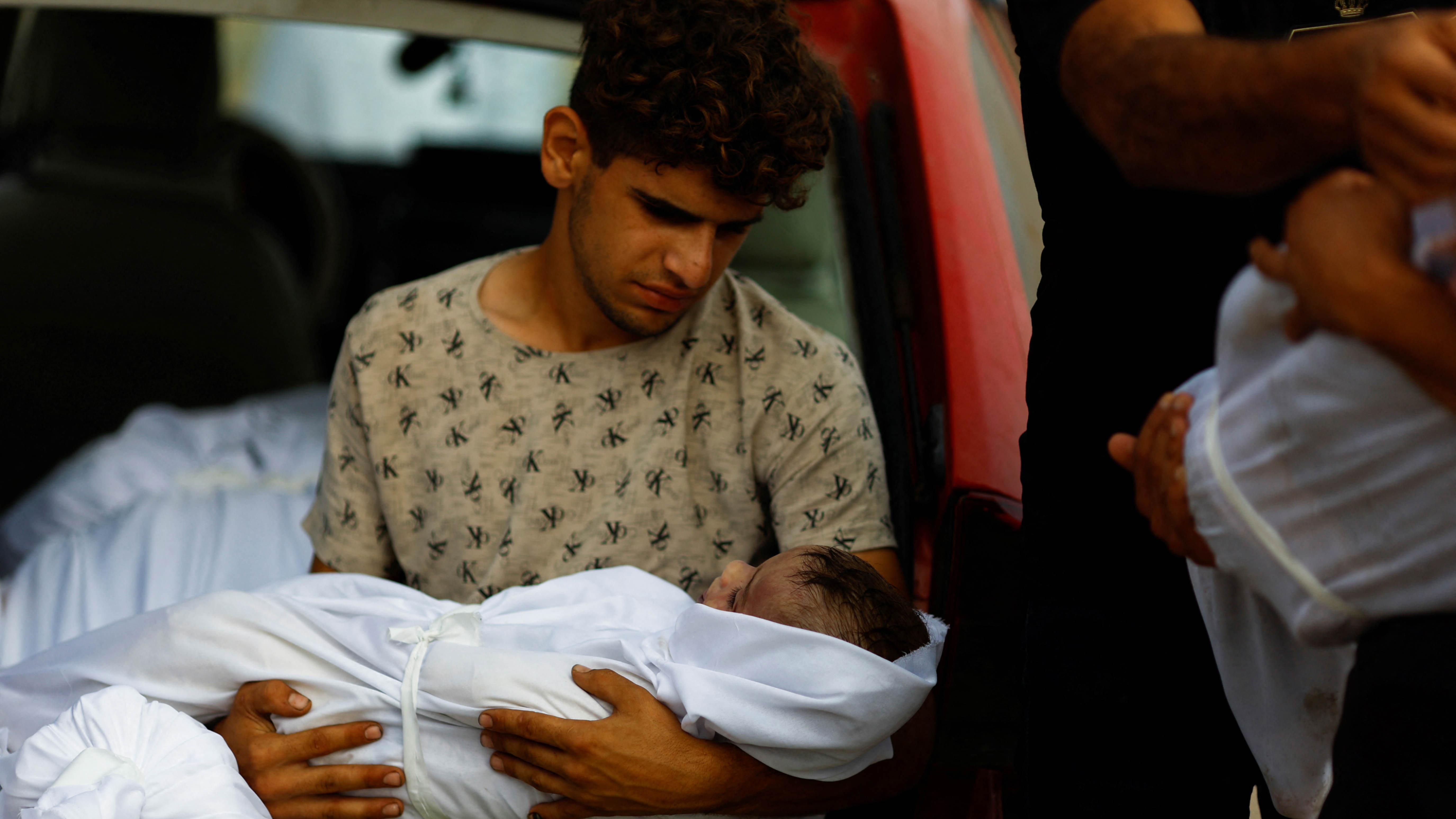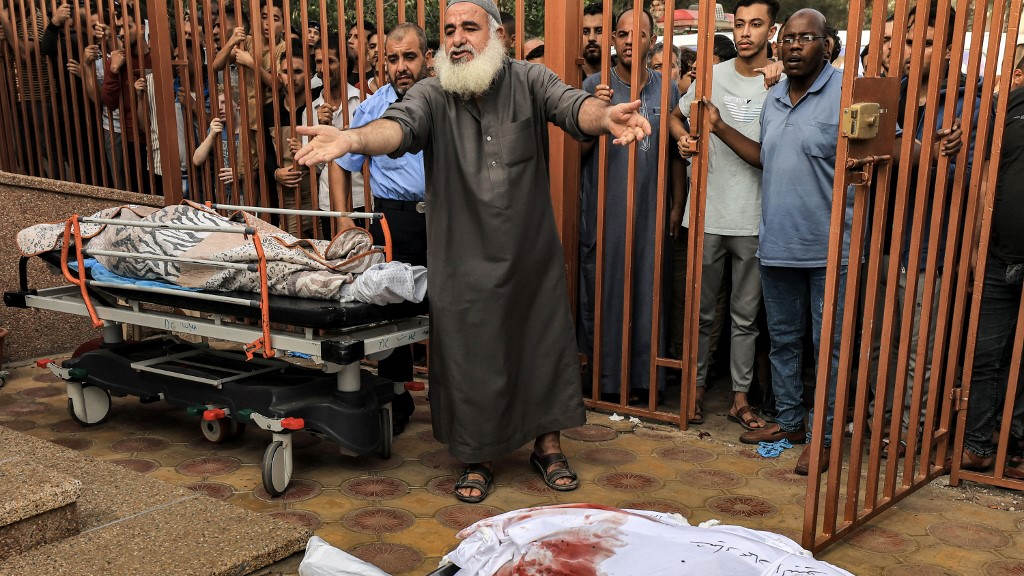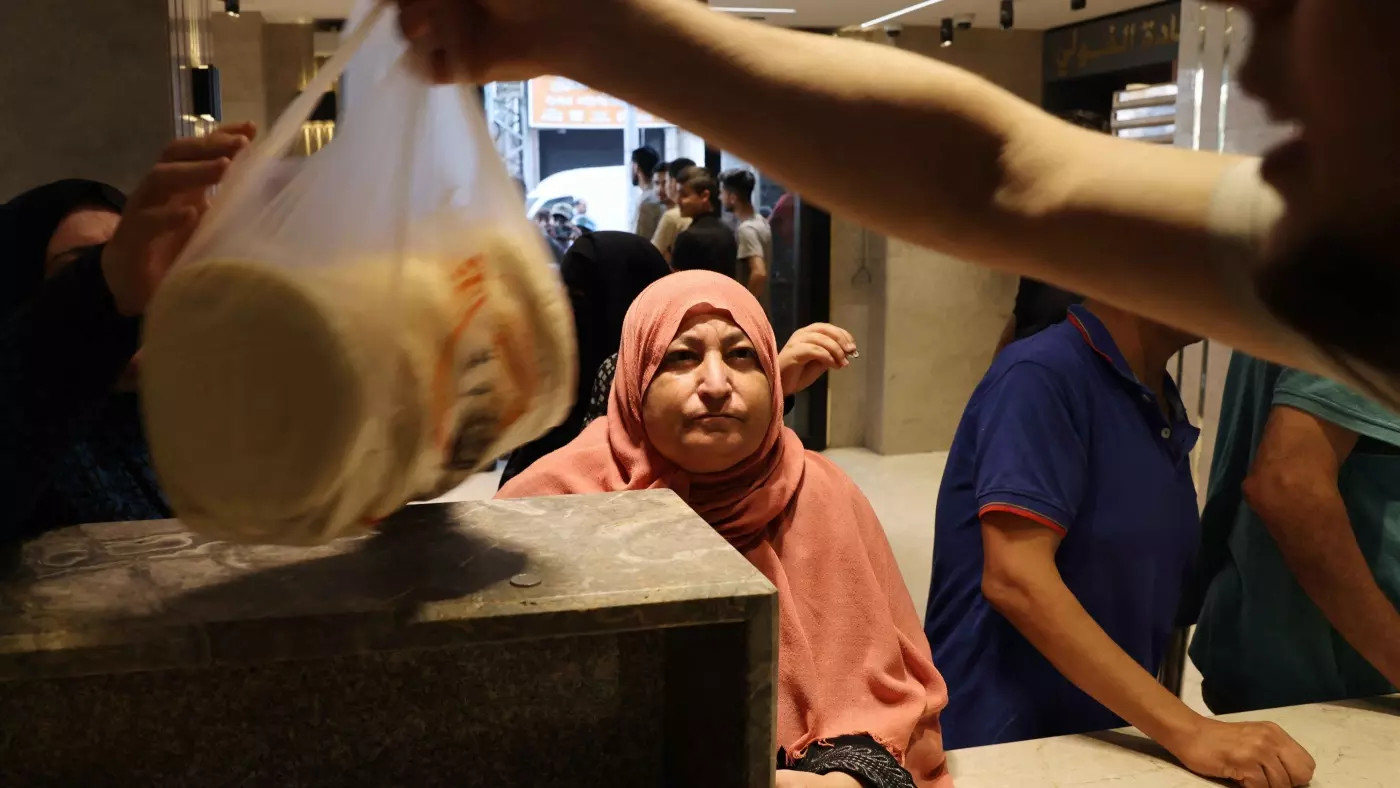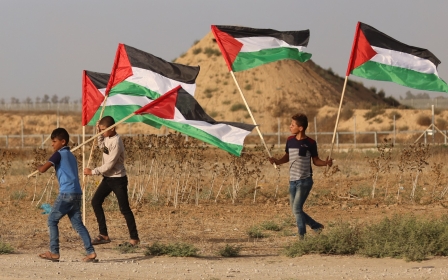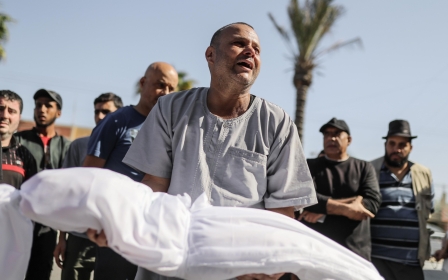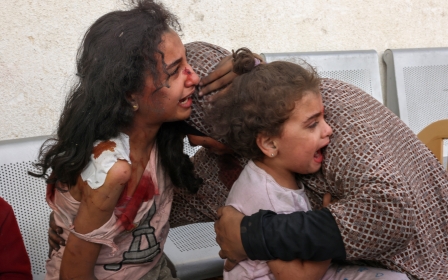Israel-Palestine live: Week three ends with over 7,000 Palestinians killed
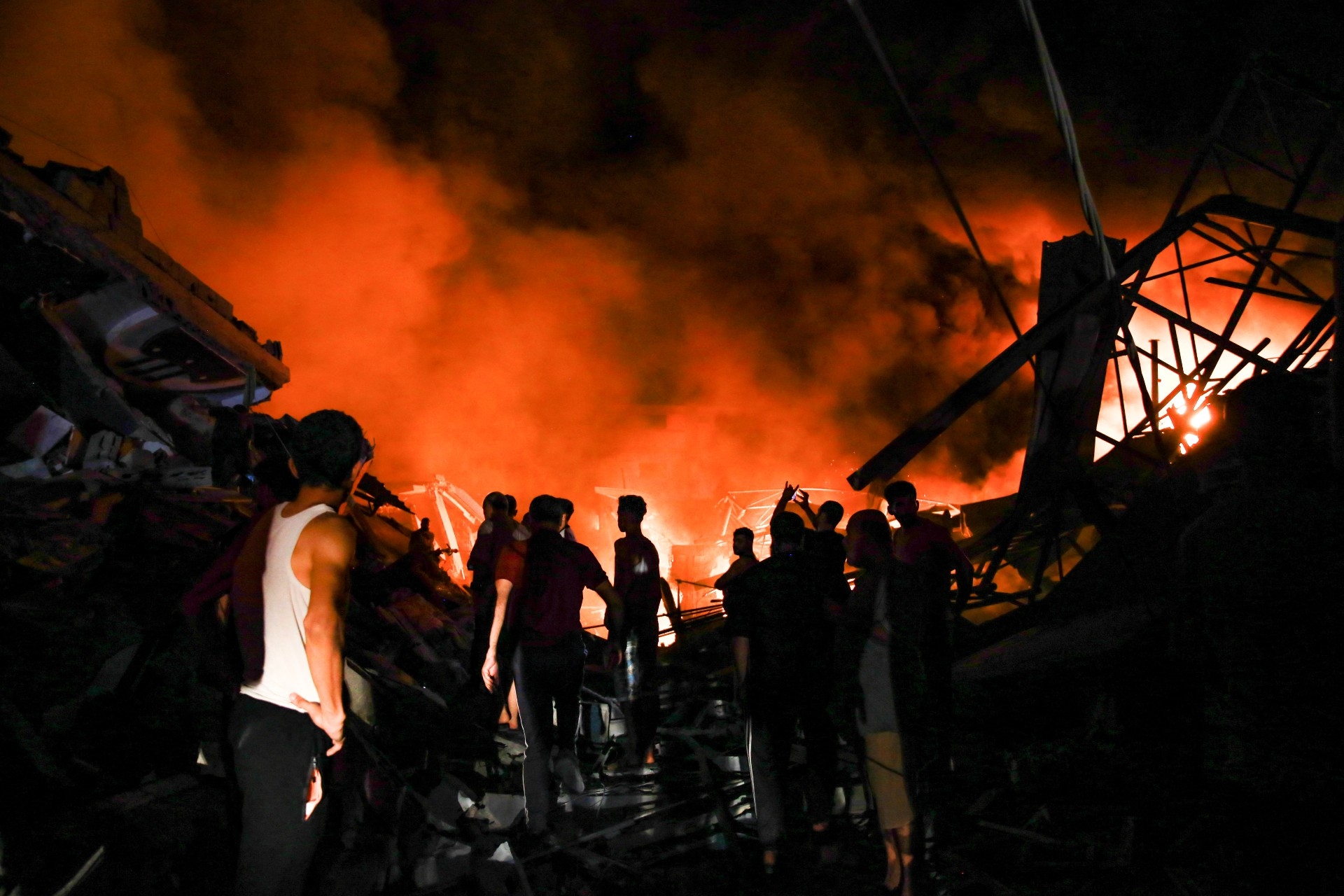
Live Updates
French President Emmanuel Macron has said that a large-scale Israeli ground invasion into Gaza would be an "error".
"France recognises Israel's right to defend itself. Regarding a ground intervention, if it is entirely targeted against terrorist groups, that is a choice that it has, but if it is a massive operation that would endanger civilian populations, in that case I think it would be an error for Israel," Macron told reporters in Egypt.
The French president added that 31 French citizens had been killed during Hamas' attacks in southern Israel earlier this month.
The wife, daughter and son of Al Jazeera Arabic’s Gaza bureau chief were killed in an Israeli air strike on Wednesday.
Wael al-Dahdouh, who is considered by many across the Arab world as the face of Al Jazeera’s Gaza coverage, was seen in footage published by Al Jazeera tearfully saying his goodbyes to his son after receiving the news of his death.
"You wanted to be a journalist," Dahdouh said while kneeling on the floor next to the dead body of his son.
"Take revenge on us with our children?" he said. "It's okay. To God we belong and to him we return."
He later said his tears were not out of "fear or cowardice" but rather of humanity.
More here: Israel kills family of Al Jazeera’s Gaza bureau chief
As Israel, backed by the US, prepares for a ground invasion of Gaza, the security of US bases and interests in the Middle East is increasingly under scrutiny due to the threat of attacks originating from Lebanon, Syria, Iraq, and Yemen.
The Pentagon confirmed on Tuesday that US troops have been attacked 10 times in Iraq and three times in Syria since 17 October.
A day earlier, US officials said they had not received any indication that Iran’s Supreme Leader, Ayatollah Ali Khamenei, had issued a directive to attack its forces in the region.
This uncertainty adds to the complexity of the situation and will determine how the US goes forward.
The US has been the biggest backer of Israel in the conflict so far and has dispatched military advisors including senior officers, as well as expedited the delivery of advanced air defence systems, not only to Israel but elsewhere in the region.
Read more: US walks a tightrope that could lead to regional war
Pressure is mounting on UK Labour leader Keir Starmer to support a ceasefire in Gaza, as Israel's bombardment of the besieged enclave claims the lives of more Palestinians.
Dozens of Labour councillors signed an open letter demanding that Starmer support a ceasefire, while the opposition leader also met with Muslim MPs who have grown concerned by the party's rhetoric around Gaza.
Alia Khan, a councillor from Luton who signed the open letter, said she did so because she disagreed with the Labour leadership's "handling of the situation".
"Calling for an immediate ceasefire is not difficult, and the Labour Party has avoided doing that for no reason," said Khan.
"The tacit support it is giving to Israel is essentially giving a green light to what the Israeli army is doing in Gaza, and that needs to stop."
It comes after several councillors resigned from the Labour Party over comments Starmer made that appeared to show him supporting Israel's decision to cut off electricity and water in Gaza.
Read more: Muslim councillors call on Starmer to demand ceasefire in Gaza
A school in Gaza's southern city of Rafah run by the United Nation Relief and Works Agency (Unrwa) has "sustained severe collateral damage due to a close strike", the organisation said on Wednesday.
The school was sheltering 4,600 forcibly displaced people, it said. One person was killed and 44 others wounded, including nine children.
Hundreds of thousands of Palestinians in Gaza were forcibly ejected from northern parts of the enclave to cities like Rafah in the south.
But in the southern Gaza Strip, they continue to come under heavy Israeli bombardment.
Unrwa said that three of its staff members were killed overnight, bringing the total number of staff killed by Israeli air strikes to 38 since 7 October.
It added that it would be forced to bring much of its humanitarian operations across Gaza to a halt if fuel was not delivered urgently.
UN chief Antonio Gutteres has rejected Israeli accusations that he justified Hamas attacks.
"I am shocked by the misrepresentations by some of my statement... as if I was justifying acts of terror by Hamas. This is false. It was the opposite," he told reporters on Wednesday.
A day earlier, he told the Security Council meeting in New York: "It is important to also recognise the attacks by Hamas did not happen in a vacuum. The Palestinian people have been subjected to 56 years of suffocating occupation."
"They have seen their land steadily devoured by settlements, plagued by violence, their economy stifled, their people displaced, and their homes demolished. Their hopes for a political solution to their plight have been vanishing," he continued.
He went on to say that such grievances could not justify "appalling attacks by Hamas", and those attacks could not justify "collective punishment" of Palestinians.
Israel responded by calling for Guterres to resign, and denying visas to UN officials.
Despite the backlash, Guterres met with representatives of the Israeli hostages held in Gaza.
French President Emmanuel Macron met his Egyptian counterpart Abdel Fattah el-Sisi during a visit to Cairo on Wednesday, during which the two spoke about the ongoing Israel-Palestine war.
Sisi said Macron had understood that any displacement of Palestinians from Gaza towards Egypt would be "extremely dangerous".
"We condemn all actions that affect all civilians and this should be addressed with one standard," Sisi added.
The two leaders agreed to work to contain the war, introduce aid into Gaza, and prevent other actors from entering hostilities, according to the Egyptian president.
Macron said that it was essential to get fuel supplies to hospitals and that a French navy ship and plane would soon arrive in the region to bring supplies to Gaza.
In a column for Middle East Eye, scholar Ghada Ageel says that everything she holds dear lies under the rubble, after Israel air strikes struck her home in Gaza's Khan Younis.
She writes: "Everything is gone. All I held dear now lies under the rubble. Precious photo albums filled with memories of my school days, the faces of dear friends, the smiles from the early days of my marriage. Moments we captured of my children's first steps, early play, and pictures from school. All gone.
Gone, too, are the photographs of my parents and grandparents. The records of my journeys. My extensive library. Some hard-earned certificates. My graduation photos. Torn asunder is my daughters' artwork as well as an enormous painting created, and gifted, by my brother-in-law, Mohammed, on our wedding day.
All of this, and so much more, has vanished. It feels like a bomb was dropped onto the very substance of my memories."
You can read the full piece below.
Opinion: 'All I held dear now lies under the rubble'
The US is planning to send its entire Iron Dome stockpile to Israel, according to a report in Haaretz on Wednesday.
Citing US officials, the report says that the stockpile, which includes two batteries and 300 interceptors owned by the US military, would be sent to assist Israel during the war.
The Pentagon has not yet officially confirmed the plans.
The US bought the Israeli-manufactured systems several years ago at the request of Congress, but has rarely used the two batteries since.
Families in Gaza are now wearing ID bracelets in case they die and so they can identify loved ones amidst ongoing Israeli bombing.
The ID bracelets are also helpful as mass graves are becoming more common in the enclave, due to the high death count.
Ali El-Daba, 40, told Reuters that he had seen bodies ripped apart by the bombing and were unrecognisable.
He said he decided to divide his family to prevent them from all dying in a single strike. He said his wife Lina, 42, kept two of their sons and two daughters in Gaza City in the north and he moved to Khan Younis in the south with three other children.
El-Daba said he was preparing for the worst. He bought blue string bracelets for his family members and tied them around both wrists. "If something happens," he said, "this way I will recognise them."
Other Palestinian families were also buying or making bracelets for their children or writing their names on their arms.
In Gaza, Palestinians are suffering due to the full siege imposed by Israel since 9 October, with the risk of starvation and dehydration running high.
Aid efforts have also been hindered by Israel’s bombing of the Rafah crossing.
People in Gaza have not had access to fuel, electricity, food or water for over two weeks. Journalists on the ground say that families queue up for up to ten hours to get bread, and often there isn’t any left.
One resident describes the situation on the ground.
“There’s no bread…we have two loaves of bread for the family, the bread is stale, a family of ten people receives only two loaves,” she says.
Egypt’s President Abdel Fattah el-Sisi addressed soldiers during a military parade in Sinai on Wednesday, telling them “not to let anger overcome you.”
The military parade was to inspect war preparedness, where Sisi said: “To the people who say we have power, no, you have power to protect yourself and your country, but don’t be overcome with anger and be forced to cross any lines.”
Unicef, the UN children's rights agency, called the situation in Gaza "a growing stain on our collective conscience".
Unicef Regional Director for the Middle East and North Africa Adele Khodr said that the death rate was “staggering,” and that “even more frightening is the fact that unless tensions are eased, and unless humanitarian aid is allowed, including food, water, medical supplies and fuel, the daily death toll will continue to rise".
It has been two weeks since Israel cut electricity and fuel supplies to Gaza and most bakeries have closed their doors, leaving two million people at risk of starvation and malnutrition.
With the war now in its third week, the few bakeries that are still running are becoming well-known names among residents of the besieged region.
Lack of fuel affects not only the bakeries in Gaza’s refugee camp but also means supermarkets have no way of refrigerating produce and desalination plants cannot operate.
Food, generator-produced electricity, and water are now also at extremely low levels following the Israeli bombing campaign in Gaza, which began in response to an attack by Hamas-led Palestinian fighters on 7 October.
More than 1.5 million Palestinians in the region face water shortages. Local authorities have been unable to supply the area with water after Israel cut water supplies.
Many residents are now pumping water from wells but that comes with risks and supplies can be contaminated with seawater and wastewater.
For the full story, click on the link below.
Read more: Siege and shelling pushes Gaza back to the ‘stone age’
Israel is using “starvation as a weapon of war against Gaza civilians,” Oxfam said in a statement today.
The organisation renewed its calls for aid, food, fuel and water to enter the besieged enclave.
Oxfam has also found that just two percent of food that would have been normally delivered has entered Gaza since the total siege.
Despite 62 trucks of aid being allowed to enter southern Gaza via the Rafah crossing since the weekend, only 30 contained food and in some cases, not exclusively so. This amounts to just one truck every three hours and 12 minutes since Saturday, their statement read.
Sally Abi Khalil, Oxfam’s Regional Middle East Director said: “The situation is nothing short of horrific - where is humanity?
"Millions of civilians are being collectively punished in full view of the world, there can be no justification for using starvation as a weapon of war.
"World leaders cannot continue to sit back and watch, they have an obligation to act and to act now."


